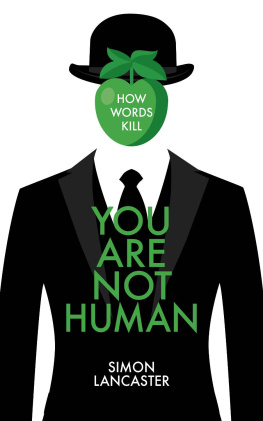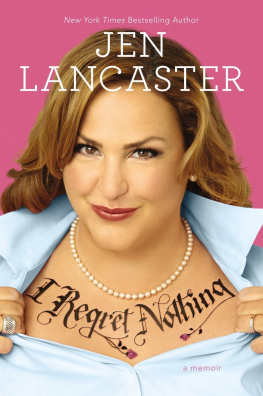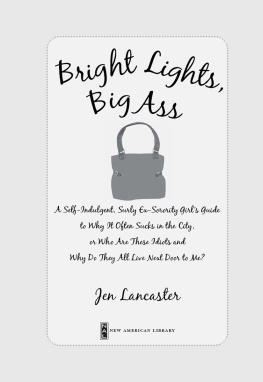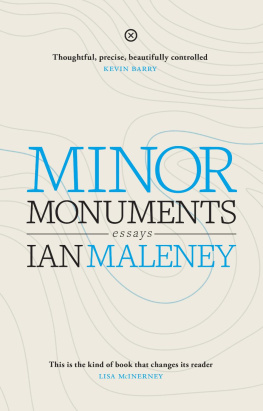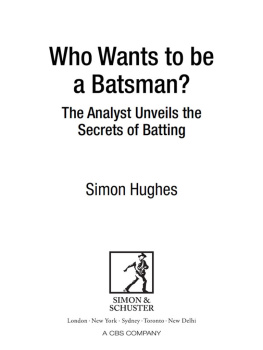Lancaster - You are not human: how words Kill
Here you can read online Lancaster - You are not human: how words Kill full text of the book (entire story) in english for free. Download pdf and epub, get meaning, cover and reviews about this ebook. City: London, year: 2018, publisher: Lightning Source Inc.;Biteback Publishing, genre: Religion. Description of the work, (preface) as well as reviews are available. Best literature library LitArk.com created for fans of good reading and offers a wide selection of genres:
Romance novel
Science fiction
Adventure
Detective
Science
History
Home and family
Prose
Art
Politics
Computer
Non-fiction
Religion
Business
Children
Humor
Choose a favorite category and find really read worthwhile books. Enjoy immersion in the world of imagination, feel the emotions of the characters or learn something new for yourself, make an fascinating discovery.
You are not human: how words Kill: summary, description and annotation
We offer to read an annotation, description, summary or preface (depends on what the author of the book "You are not human: how words Kill" wrote himself). If you haven't found the necessary information about the book — write in the comments, we will try to find it.
You are not human: how words Kill — read online for free the complete book (whole text) full work
Below is the text of the book, divided by pages. System saving the place of the last page read, allows you to conveniently read the book "You are not human: how words Kill" online for free, without having to search again every time where you left off. Put a bookmark, and you can go to the page where you finished reading at any time.
Font size:
Interval:
Bookmark:
A timely and pressing reminder why politicians should think before they sound bite
B ARONESS W ARSI, FORMER C ONSERVATIVE P ARTY CHAIR
This book is chock full of the things weve come to expect from Simon Lancaster: insight, passion and a phenomenal talent for self-expression. The power of metaphor has never been so effectively explored or explained.
A LAN J OHNSON, FORMER L ABOUR P ARTY H OME S ECRETARY
A great rollicking read, full of eye-popping stories youve never heard, but which also manages to weave stats and scholarship into a vivid, complete tapestry. Everyone who needs to weigh their words should read it; and anyone who wants to avoid being unwittingly co-opted by the sales talk of politics, Big Tech and snake oil salesmen needs a copy to hand.
T REVOR P HILLIPS, FORMER E QUALITY AND H UMAN R IGHTS C OMMISSION CHAIR
To my mum and all the other humans
Picture this! How a communist painters love affair with fruit inspired the most valuable brand in the history of capitalism.
Step into the dark world of dehumanisation and death: from Christian rhetoric to Charles Manson.
Can you summon the devil? From Russian dolls to Russian trolls.
How clinicians and scientists plant the idea that our loved ones would be better off dead.
The dirty truth about why there are some communities that politicians wont touch with a bargepole.
The trigger words that make good people kill.
#MeToo, #TimesUp and the generation of Hollywood producers who depicted women as bitches.
What we can learn from the way a boa constrictor kills a mouse.
Why black men are more likely to die in police custody than white men.
Meet the nineteenth-century physicist who demonstrated the real meaning of political spin.
The magical arts that make new technologies irresistible.
Dulce et Decorum Est. Why debates about nationalism can split families in two.
Amy Winehouse, David Bowie and illusions of immortality.
The secret alliance of evangelists and angels who are called upon to bless aspiring US Presidents.
Adventures in cyberspace: the amazing story of how the geeks came to inherit the earth.
Forget turning water into wine: meet the forces that can create a new universe in seconds.
Why did the Beatles really stop recording together?
I ts an unexpectedly warm evening in February 2013 and hundreds of global art collectors, foreign investors and members of Londons creative glitterati are making their way down St Jamess Street, London towards the pillared doors of Christies auction house. For 250 years, this has been a place where millions of pounds have been spent with a literal blink of the eye or wave of the hand and tonight promises to be just such a night. Private collections and secret vaults around the world have been prised open for the Art of the Surreal auction. All the seats have been taken. The doorways are full. Dozens of people line the room, nervously checking their phones and biting their lips.
Jussi Pylkknen, the Finnish global president of Christies and auctioneer for the evening, gracefully welcomes everyone and briskly begins bidding on lot number 101 a tiny oil painting called Les Coquilles by Max Ernst. The guide price was 100,000 to 150,000 but it ends up going for a breath-taking 433,250. Then, we head straight to lot number 102 the Study for the Head of the Virgin, by Salvador Dal a fairly cursory and unattractive work which had been estimated to sell for 50,000 to 70,000 but ends up fetching 337,250. Lot number 103, Volupt by Francis Picabia, estimated at 80,000 to 120,000, ends up going for 229,250. It is going to be one of those nights. Pylkknen smiles.
Now, its time for lot 104. This is one of the star lots. Much of the pre-auction publicity has centred on this oil painting. All eyes in the room turn right, towards this grand, irregularly framed, world-renowned oil painting by Ren Magritte. Theres no bowler hat in this painting, but there is an apple. Or, at least, I think its an apple
Magritte is probably one of the worlds best-known surrealists. He was hugely influential on the London counterculture movement in the 60s. John and Yoko talked about him on their first date. In the 70s, his influence was evident on a number of album covers from Pink Floyd to Jeff Beck. In the 80s, he inspired a Fleetwood Mac video and Paul Simon even wrote a song about him Ren and Georgette Magritte with Their Dog After the War.
Magritte was a rebel and subversive. In some ways, he was the precursor to Andy Warhol and 1950s Pop Art, constantly probing the ethics of capitalism, challenging the gap between reality and illusion. He was also a communist but, bizarrely, he came to inspire the biggest brand that has ever been known in the history of capitalism but well come to that later. For now, lets take a look at his intriguing back story.
Magritte was born in Lessines in the province of Hainaut, Belgium in 1898 to Lopold Magritte, a tailor, and Rgina (ne Bertinchamps), a hatmaker. The oldest of three boys, his family had money but his upbringing was turbulent. His mother suffered severely with depression and attempted suicide a number of times. On one occasion, she tried to drown herself in the water tank upstairs in the attic. She was rescued but, after that, was forced to spend the rest of her life locked in her bedroom for her own protection. Life must have been filled with anxiety and anguish for young Ren, hearing his mothers cries from the next room. Finally, one night in 1912, she smashed down her bedroom door, fled from the house and made for the bridge that ran behind their family home. There, she flung herself in the raging River Sambre below. Ren Magritte was just fourteen years old.
When her bruised and battered corpse was discovered several days later, a mile downstream, she was returned to the family home and laid out in the familys front room. Her face had been covered with a blanket. A nurse probably did this to avoid traumatising young Ren, but it seems to have had precisely the opposite effect because for the rest of his life much of his artwork involved deliberately concealing or corrupting peoples faces, as on the cover of this book. To see a human body with their face removed, blocked or distorted even slightly is profoundly shocking; it confounds our most primitive and basic expectations. Maybe Magrittes intention in depicting such shocking images was to recreate the feeling he had experienced when he first saw his dead mother.
Psychologists say a fascination with reality and illusion is common amongst those who are bereaved young: it is a consequence of them trying to reconcile their two conflicting worlds the world they wish exists (in which their mother is still alive) and the world they know exists (in which their mother is dead). John Lennon shared this fascination with Magritte. His mother was also killed when he was young and he also found comfort in surrealism. As he said, Surrealism had a great effect on me because then I realised that the imagery in my mind wasnt insanity. Surrealism to me is reality. Dancing upon the intersection between reality and illusion yielded many of Lennons truly greatest works Strawberry Fields Forever, Lucy in the Sky with Diamonds and I am the Walrus. It also proved immensely productive for Magritte.
The first piece of Magrittes oeuvre to catch the public eye was The Treachery of Images, produced in 1929 when he was just thirty years old. At first glance, this was just a simple classical picture of a pipe. But then beneath the pipe, in beautiful calligraphy, in a style which was immediately redolent of pre-school books used to teach children the alphabet A is for Apple, B is for Banana, C is for Caterpillar it said,
Font size:
Interval:
Bookmark:
Similar books «You are not human: how words Kill»
Look at similar books to You are not human: how words Kill. We have selected literature similar in name and meaning in the hope of providing readers with more options to find new, interesting, not yet read works.
Discussion, reviews of the book You are not human: how words Kill and just readers' own opinions. Leave your comments, write what you think about the work, its meaning or the main characters. Specify what exactly you liked and what you didn't like, and why you think so.

